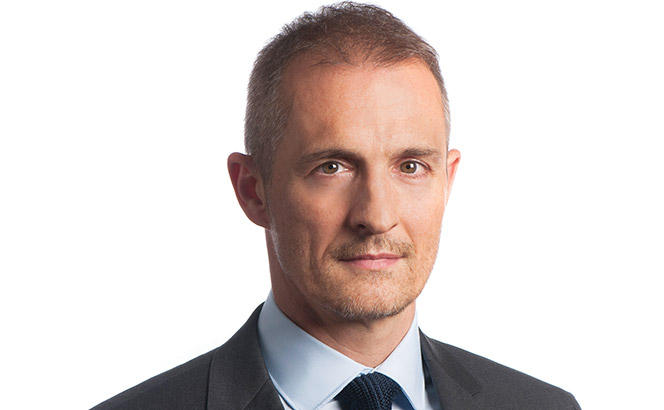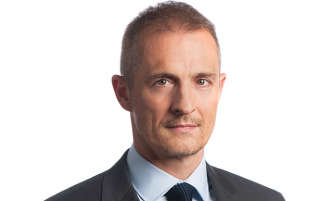Following the announcement of its move to a new office space at 8 Bishopsgate, Legal Business spoke to King & Spalding London managing partner Tom Sprange KC (pictured) about the move, the firm’s expansion plans and cracking the private equity market.
‘I can’t emphasise enough how important the new office is to us, on a strategic, symbolic, practical, and professional level. The firm launched in London in 2003 with a handful of people in rented office space so announcing a new state-of-the-art office is a perfect way to not only mark our 20th anniversary but also to secure the foundations for further growth over the next two decades and beyond,’ Sprange responded when asked about the rationale behind the move.
The new office cements the firm’s commitment to further expansion in London, after it found it had outgrown its previous space. ‘On a basic level, our investments over the years have seen us grow to almost 90 fee earners and 150 colleagues in total, which is more than triple what we were 10 years ago. As such, we are pretty much at capacity in our present space. On a strategic level, our growth plans presented us with a choice to either be conservative or ambitious when it came to office space. We opted for ambition. We see the move as a new chapter in our history and an important first step for the next stage of our evolution,’ Sprange added.
Commenting on the firm’s recruitment strategy in London, Sprange said: ‘We have always been precise and rigorous in our recruitment strategy. We would rather have steady but high quality, sustainable growth, rather than rapid but transient growth. That is our aim, rather than putting specific targets in places. The London market is one of the most competitive in the world and US law firms with legal headcounts beyond the double-digit threshold are becoming ever more common. While smaller offices can corner certain niches, you need critical mass to really be in the game. That means having a constant eye on ensuring that we are securing and executing high-value work as much as we are growing lawyer numbers.’
Recent high-profile hires include ex-Reed Smith counsel Patrick Schuman who joined the firm as a partner in January 2023. Focusing on restructuring, he works across the energy, construction, and commodities sectors. Investment funds and asset management partner Stephen Sims also joined the firm in November 2022 moving from management consultant MJ Hudson. Sims previously headed Skadden’s European investment management team.
In October 2022 the firm added private equity partners Amit Kataria and Paul Barron to its corporate practice. Kataria moved from Morrison Foerster and Barron marked a rare departure from Dickson Minto. August 2022 saw the arrival of partners Richard Kitchen and Amin Doulai who joined its corporate, finance and investments group. The pair moved from Paul Hastings.
However, the firm’s recruitment strategy is not focused solely on lateral hires. ‘A huge focus for most firms is on partners, and rightly so, but identifying and developing those next generation lawyers is something we take great pride in. The development of our trainee program and the proliferation of home-grown talent in our ranks is testament to that,’ Sprange added.
Traditionally known for its disputes expertise, with its international arbitration practice ranked tier 1 in the Legal 500 and its contentious construction and civil fraud practices ranked tier 3, the firm is keen, however, to offer a rounded experience to clients. ‘We’re committed to our London disputes practice – not least as I was the first disputes lawyer to join the group here in 2011 – but the key is to balance our practice to reflect the market and our clients’ needs. London has a transactional slant that is unique and creates a different set of demands than the more litigious US market. The nature of disputes or regulatory work is therefore different to transactional work internationally. That said, the goal is to be able to provide clients with sophisticated advice no matter what the scenario so we like to approach everything through a holistic frame and see how practices can complement others in the firm.’
Having made significant investments in its corporate practice over the last two years, the firm is keen to make its mark in the private equity sphere, alongside its American peers in London. ‘It is no secret that the firm has been investing substantially in our corporate, finance and investments (CFI) practice, both in London and internationally – we added seven CFI partners in London and six in EMEA in the past year or so. We have more exciting hires in the pipeline.’
‘The private equity and private credit space has been a key area for us, although we’re acutely aware of how intense that sector is so we’re trying to carve out something a bit different. We’d also look at building out areas such as employment, tech, competition and white collar teams,’ Sprange concluded.














